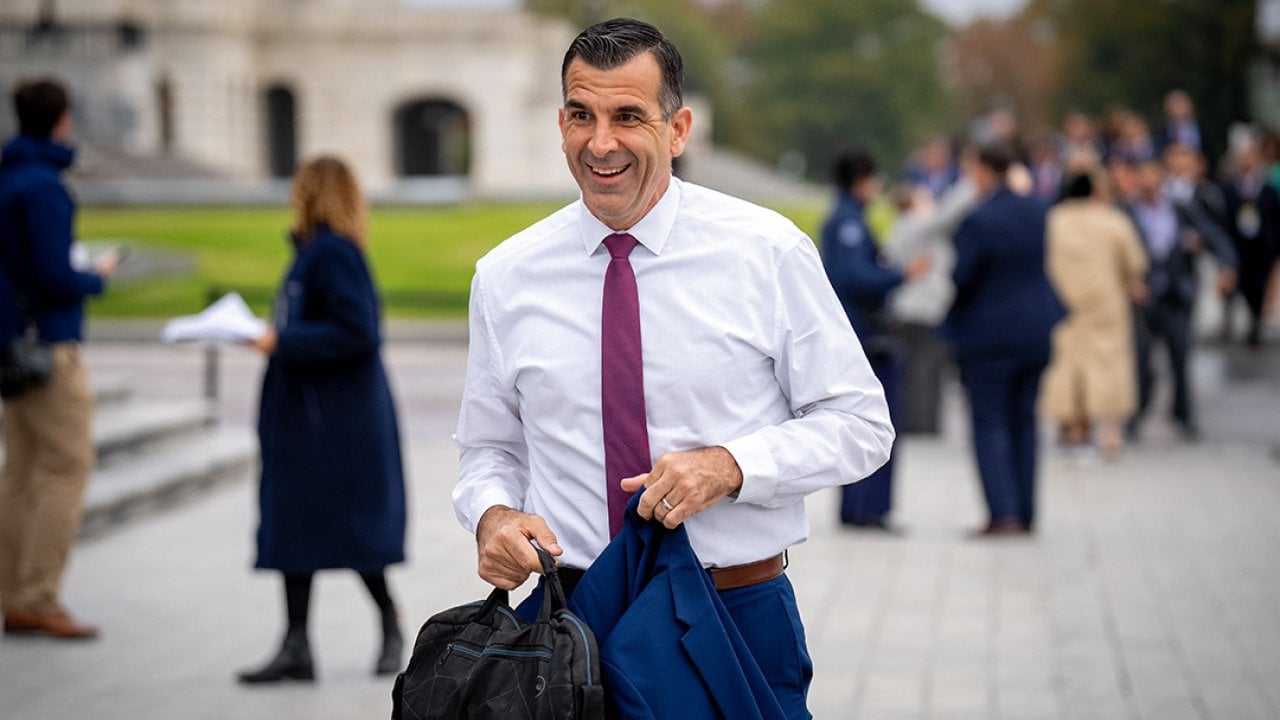Freshman lawmakers see increased donations from industries under their purview

Andrew Harnik // Getty Images
Freshman lawmakers see increased donations from industries under their purview
When California Democrat Sam Liccardo ran for the U.S. House of Representatives last year, 13% of his political action committee contributions came from finance companies, insurers, and real estate agents, OpenSecrets data shows.
Liccardo won, and received a coveted appointment to the Financial Services Committee. During the first three months of 2025, as he began raising money for his re-election, more than half of his political action committee donations — 57% — came from the industries under his panel’s jurisdiction, according to his April 15 Federal Election Commission filing.
Citigroup contributed $1,000 to Liccardo’s re-election campaign after keeping its checkbooks closed during his first campaign.
Liccardo, who did not respond to requests for comment, is not alone.
First-quarter FEC reports found plenty of other first-term lawmakers now filling their re-election campaign coffers with PAC money from industries that fall under the jurisdiction of the committees the lawmakers now sit on.
Take Rep. Rob Bresnahan (R-Pa.) for example. When he first ran in 2024, transportation PACs donated $7,500 to his campaign. During the first three months of 2025, he took in $18,500 from the sector’s PACs.
Among his new PAC donors was the Owner-Operator Independent Drivers Association, which represents truckers.
“OOIDA supports candidates and elected officials who are engaged on the policy issues that matter most to the 150,000 truckers we proudly represent,” spokesman George O’Connor said. “Contributions are made based on a demonstrated interest in and commitment to transportation policies that improve roadway safety and the livelihood of truckers across America.”
Bresnahan did not respond to requests for comment.
Rep. Mark Messmer (R-Ind.) received one $1,000 contribution from a defense company PAC when he ran for the House last year. As a newly minted member of the Armed Services Committee, he took in $8,500 in March of this year alone, including $1,000 apiece from the PACs associated with Boeing, Lockheed Martin, and Textron.
“Our employee PAC program continues to observe long-standing principles of non-partisan political engagement in support of our business interests,” Lockheed said in a statement.
Messmer did not respond to requests for comment.
“The system is fundamentally broken,” said Bawadden Sayed, a spokesman for End Citizens United, which supports overhauling campaign finance laws. “The moment lawmakers receive committee assignments, special interests see an opportunity — and the money follows. This is a defining feature of how Washington works.”
The pattern is bipartisan. Consider:
- Rep. Nick Begich III (R-Alaska) raised $32,000 from energy and resources sector PACs after landing a seat on the Natural Resources Committee in January. When he ran last year, he took in only $17,000 from those PACs.
- Rep. Janelle Bynum (D-Ore.) received $1,000 from one financial sector PAC as a candidate for office. As a member of the Financial Services Committee, she received $20,000 during the first three months of 2025.
- Rep. Jeff Crank (R-Colo.), now a member of the Armed Services Committee, raised 6 percent of his PAC money from the defense sector during his first successful campaign. From January to March of this year, that sector accounted for one-fourth of his PAC contributions.
- Rep. Julie Fedorchak (R-N.D.) a member of the Energy and Commerce Committee, saw PAC donations from the health sector grow to $19,500 during the first three months of 2025 from $8,500 in 2024. The sector accounted for 11 percent of PAC donations, up from 2 percent last year.
- Rep. Josh Riley (D-N.Y.) didn’t receive any donations from agriculture PACs when he ran for Congress last year. Now a member of the Agriculture Committee, he collected $17,000 from that sector’s PACs through March 31.
- Rep. George Whitesides (D-Calif.) joined the Science, Space and Technology Committee, and subsequently saw space industry PACs give his campaign committee $10,500 during the first three months of 2025 after ignoring him in 2024 — even though he is a former NASA chief of staff. Among the new donors were Jeff Bezos’ Blue Origin, whose PAC contributed $2,000.
“The American people are told their interests come first, but that’s a hard sell when lawmakers are cashing checks from the industries they’re supposed to regulate,” Sayed said. “People see this transactional relationship for what it is, and it’s why they don’t have any trust in Congress.”
This story was produced by OpenSecrets and reviewed and distributed by Stacker.
![]()


